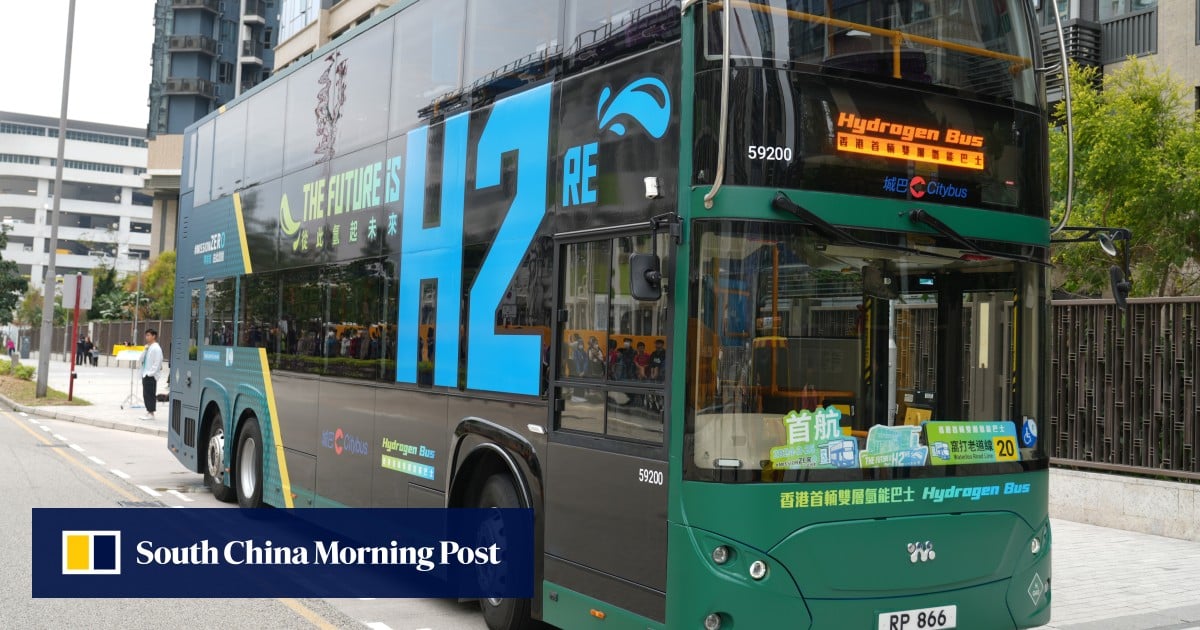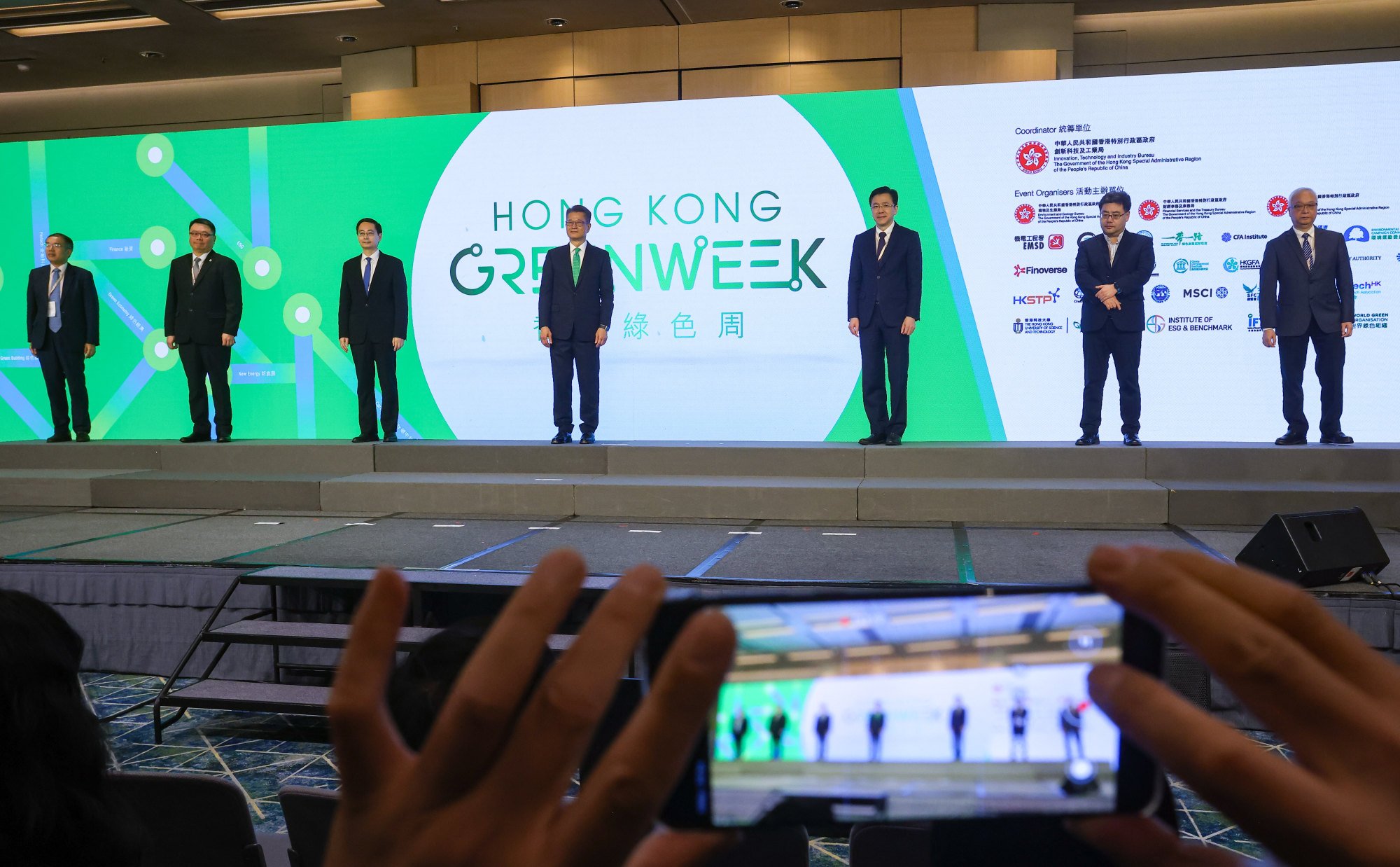
26 Feb GreenTech Summit: Hong Kong must surmount skills gap, lack of collaboration to reach full decarbonisation potential
Green technology is crucial for decarbonising the transport and construction industries, but its adoption in Hong Kong faces challenges including a skills gap and the development of a sustainable ecosystem, according to experts at the Hong Kong GreenTech Summit 2024.
“We need a very healthy ecosystem that can draw partners together, because we need to see a green supply chain with an up-, mid- and downstream,” Lee said. “When you scale [greentech] up, it has to be economical. We need all the different partners to play a role and come to a solutions-based outcome … from policymaking to new materials introduced and how economical the solution is. The solution needs to be financially viable.”
Policy support is also needed to aid the development of green technology, as it can help speed up adoption, Lee added.

Collaboration across industries and among different stakeholders is required to create an ecosystem that allows new green technology to become integrated into processes and therefore succeed, Michael Long, group head of sustainability at New World Development, said during a panel on buildings and construction.
“One of the big challenges we have around greentech is that the thinking and the technology has advanced very quickly, but the practitioners who are expected to be using and selling these materials in their products … their skill sets are still only emerging in these spaces,” Long said.
Making effective use of green technology is not simply a matter of “bringing the kit in”, he said.
“Most people in the construction industry [may] not know what low-carbon concrete is. There is a huge opportunity to build up skill and capacity in [greentech] from a construction perspective.”
The transport industry faces such a skills gap, Richard Hall, managing director of Citybus, said on the transport and logistics panel. “We still need people that understand the product and deliver the transport solution for us, [be it] cars or trains or buses. We’ve got a skills gap in Hong Kong. Sustainability is about having that labour supply chain.”
Hong Kong well-suited to lead region in green technology development: Paul Chan
Hong Kong well-suited to lead region in green technology development: Paul Chan
Greentech is a talent-intensive industry, and Hong Kong has unique advantages in this aspect, Song Kai, chief digital officer of China Merchants Energy Shipping, said during the transport and logistics panel.
“In the past, the city’s talent pool has played a crucial role in … connecting the [Chinese] mainland with the world, whether in terms of commerce or fintech,” Song said. “The greentech industry can leverage on this basis.”
Fostering public, private and academic research partnerships is important to help expand the use of greentech in the construction industry, said Poman Lo, founder and faculty adviser of The Institute of Sustainability and Technology.
“Leveraging all the potential synergies with the Greater Bay Area, Hong Kong does stand a very good chance of becoming a leading global greentech centre, and perhaps even a leader in the adoption of greentech,” said Lo, who moderated the buildings and construction panel.
Hong Kong is ‘Asia’s sustainable finance centre’, financiers say
Hong Kong is ‘Asia’s sustainable finance centre’, financiers say
Greentech is the key to achieving net-zero goals, said Adair Turner, chairman of Energy Transitions Commission, an international think tank.
“Green technology is the absolute core of how we are going to build a zero-carbon economy across the world,” he said. “The simplest message of how we get there is that we electrify as much as possible: we electrify road transport almost entirely, we electrify residential heat and we decarbonise electricity production as much as possible.”
